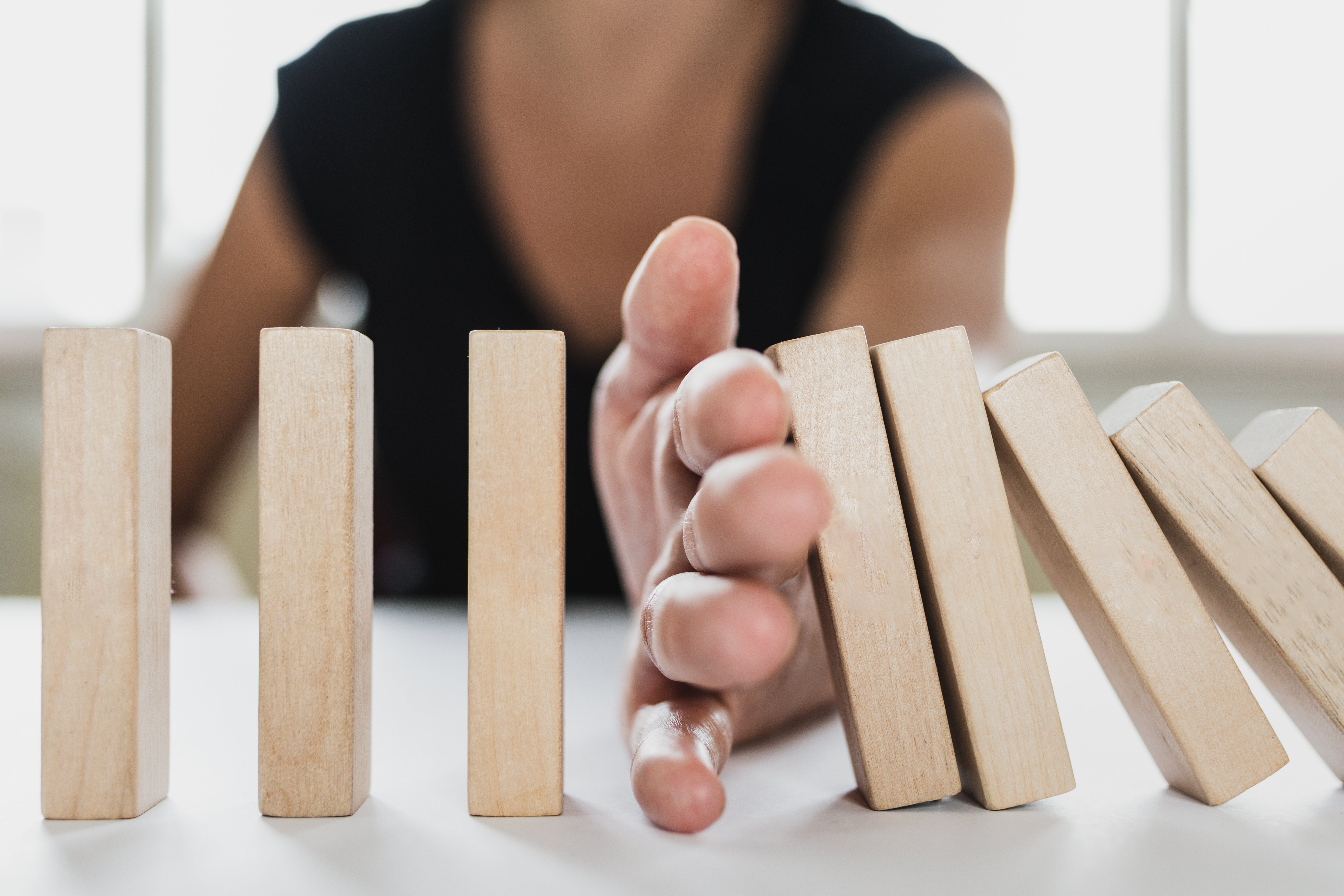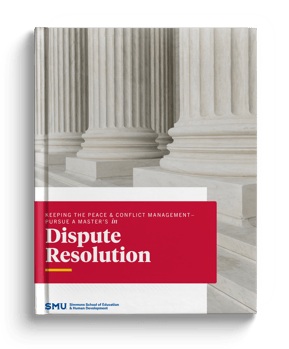
Communication unites us, prompting cooperation and shared understanding. Yet, it can also lead to disagreement. In a world where conflict increasingly seems to be the norm, the need for dispute resolution professionals is, as you would expect, also on the rise. These are skilled individuals who clear the path for smoother interactions, and they’re often equipped with a specialized dispute resolution degree. But what is a dispute resolution program? And how can it better prepare people to navigate the complex and frequently fiery world of conflict management?
Given these emerging challenges, the role of dispute resolution experts has become more significant than ever before. Equipped with a dispute resolution degree, these professionals step in to untangle conflict and encourage a more harmonious world on a personal, organizational, community, and global scale.
Key Takeaways:
- Conflict is everywhere and growing. Skilled conflict managers are in high demand across industries, sectors, and relationships.
- A dispute resolution program at the master’s level builds sought-after skills to secure a lucrative and in-demand career.
- SMU’s Dispute Resolution program empowers you to lead change and resolve conflict with confidence.
Blog: What is Dispute Resolution?
Why is the World Becoming More Prone to Disputes?
More than ever, there is a need to resolve conflict. Let's break down the areas where arguments seem to be becoming more common: politics, social connections, business, and technology.
Political Unrest: Recent years have seen an alarming surge in political polarization. Differing ideologies are clashing head-on, causing stalemates and misunderstanding. Dispute experts can help mitigate the effects of political disruption and foster dialogue for smoother governance and cultures.
Social Changes: Ranging from evolving social norms and changing demographics to shifts in gender identities and economic disparities, changes in our social landscape shape our world progressively. But not without creating new grounds for conflict. These growing tensions may stem from cultural clashes, generational gaps, or socioeconomic changes.
Business Conflict: As international collaborations and digital transition reign supreme in the business world, the potential for conflicts has seen a rise.. Misunderstandings over contracts and employee disagreements are among the many situations where dispute experts become pivotal for resolution. Political and social changes often seep into the business world, stirring conflict there as well.
Technological Advancements: The unprecedented evolution of technology has progressed and blurred societal norms, increasing disputes in every corner of the world. As cybersecurity threats, intellectual property issues, and ethical dilemmas multiply with this progress, the demand for highly trained dispute resolution professionals rises to address these growing complexities.
Download our Guide: Keeping the Peace & Conflict Management – Pursue a Master's in Dispute Resolution
The Role of a Dispute Resolution Expert
Modern disputes require age-old wisdom. To keep the peace in an increasingly conflicted world, you can look toward a few trusted skills to help. That’s where a dispute resolution program comes into play.
Many will look to politicians, lawyers, or activists to help settle conflicts, but on a granular scale, businesses and organizations are looking to dispute resolution professionals. In the modern world, conflicts cannot be solved with fighting and weapons. We must look for peaceful solutions.
Here's a look at some essential skills a dispute resolution program expert must master to become indispensable and solve today’s most complex issues:
Top Conflict Management Skills
- Communication
- Listening
- Problem-Solving
- Emotional Intelligence
- Cultural Competence
Communication Skills: Conflict management experts must be clear and succinct communicators. They're responsible for understanding all parties' perspectives in the dispute and effectively conveying both sides. Effective communication can help ensure greater understanding and collaboration between conflicting parties, paving the way for resolution.
Listening Skills: Listening goes beyond just hearing words. It involves understanding and interpreting the sentiments behind the spoken word, picking up on non-verbal cues, and showing empathy. Mastering this skill enables dispute resolution professionals to grasp the root of a conflict, fostering an environment where all parties feel understood.
Problem-Solving Skills: With the mindset of a mediator, dispute resolution experts must be excellent problem solvers with a knack for coming up with pragmatic and acceptable solutions. They utilize their knowledge of conflict management strategies and the specific situation's dynamics to propose fair and satisfying resolutions.
Emotional Intelligence: Being in tune with their own emotions as well as others' helps these experts to respond appropriately to stressful situations. High emotional intelligence enables them to establish a safe environment, encourage open dialogue, and progress toward resolution.
Cultural Competence: Given the global nature of many disputes, cultural competence is crucial. Understanding and respecting cultural differences can help mitigate misunderstandings and facilitate respectful, meaningful conversations that lead to effective dispute resolution.
If you’ve already noticed an interest in pursuing a formal career in dispute resolution, you likely have some of these skills under your belt. However, with formal education and training, you can move from an interest in being a modern peacekeeper to a full career in conflict management. The key is a dispute resolution degree.
Getting a Dispute Resolution Degree from SMU
The solution to the world's escalating disputes lies in effective methods of resolution. There couldn't be a more pressing time to pursue a specialized dispute resolution degree.
SMU’s master's degree in dispute resolution provides a comprehensive understanding of the complexities of conflict management and the practical skills you need to excel as a dispute resolution expert. If you're ready to step up as a modern-day peacekeeper, we’re ready to prepare you to succeed.
Discover how to help in the modern world with our comprehensive guide: Keeping the Peace & Conflict Management – Pursue a Master's in Dispute Resolution. The guide will explore why and how a formal education in conflict management and dispute resolution is the solution to modern disputes. Are you the key to dispute resolution? Find out.

